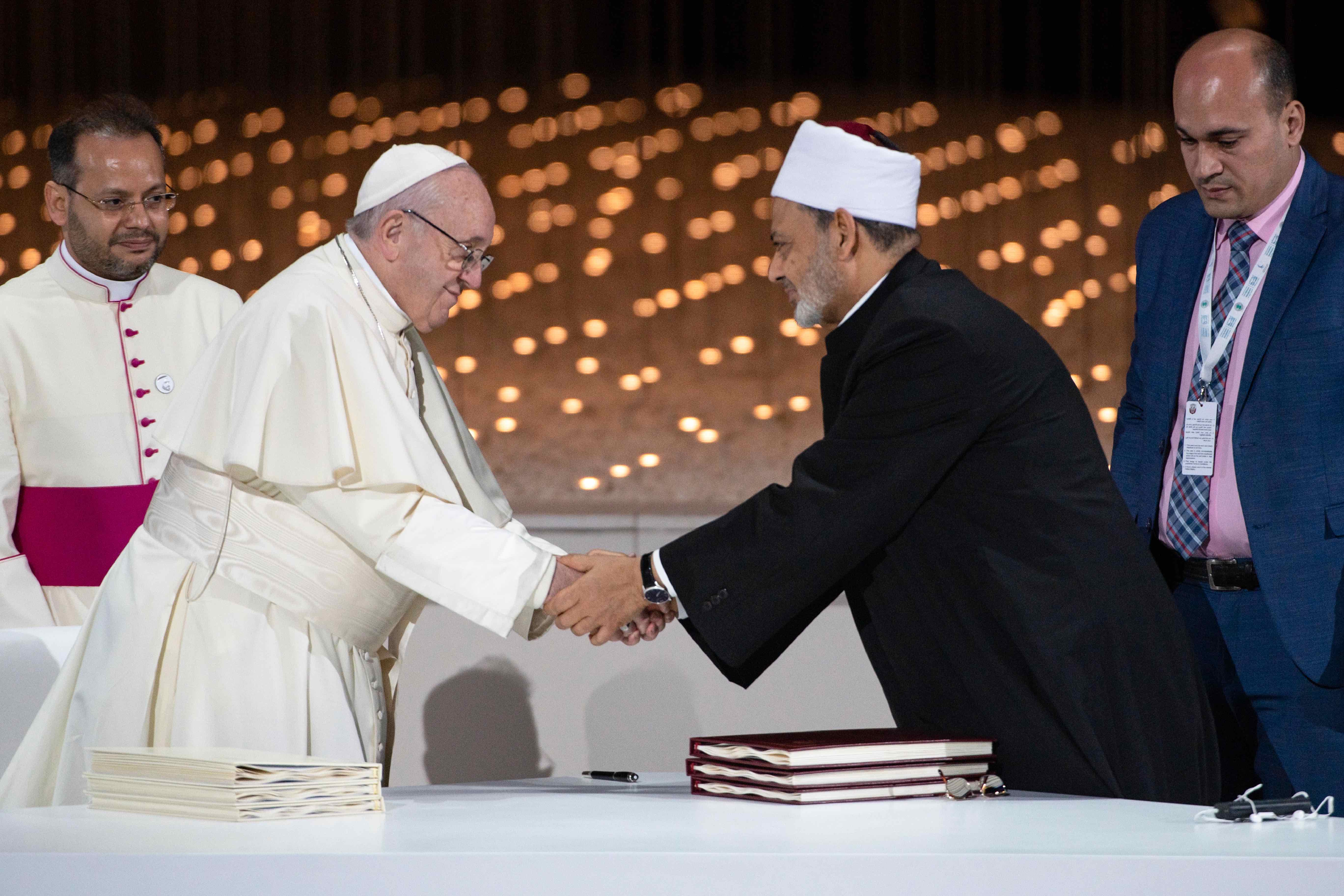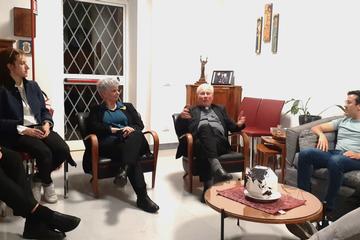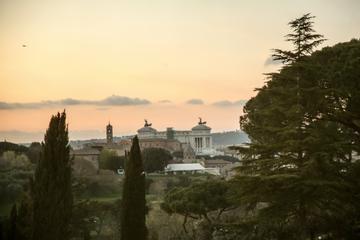
By Elena Dini
ROME — A new committee was established this past summer to promote the ideals contained in the “Document on Human Fraternity for World Peace and Living Together,” an historic document co-signed by Pope Francis and one of the most recognized Sunni Muslim authorities worldwide, Grand Imam Ahmed al-Tayyeb.
The document was signed earlier this year when Pope Francis paid an historical visit to the United Arab Emirates. It was the first time a pope was in the Arabian Peninsula. It was also the first time a pope co-signed a document — intended to reach all Catholics and Muslims — with a Muslim leader.
The first meeting of the new committee, established in August, took place in the Vatican, at Casa Santa Marta, Sept. 11.
About a week later, then Cardinal-elect Miguel Ayuso Guixot, president of the Pontifical Council for Interreligious Dialogue, told Zenit that the new committee would “encourage the communities […] so that they commit themselves to read, comment and promote interreligious dialogue through the contents of that Declaration.”
As the document affirms at its incipit, this text came to light because of a lived relationship between Pope Francis and the Grand Imam Ahmed al-Tayyeb, from their “fraternal and open discussions, and from the meetings that expressed profound hope in a bright future for all human beings.”
For those who are used to reading Vatican documents, this text will seem a bit unusual. It starts with a very common Islamic expression — “In the name of God” — the phrase by which almost all suras, or chapters, of the Quran begin. However, what is contained in the few pages thus introduced is not only affirmed “In the name of God who has created all human beings equal in rights, duties and dignity” but also “in the name of” a number of disadvantaged groups of people, such as “the poor, the destitute, the marginalized,” “orphans, widows, refugees and those exiled,” and in the name of “human fraternity,” “freedom,” “justice and mercy.”
In this context, these two leaders declare in their document “the adoption of a culture of dialogue as the path; mutual cooperation as the code of conduct; reciprocal understanding as the method and standard.” While Grand Imam al-Tayyeb is a renowned authority in the Muslim world, it must be pointed out that Islam does not recognize a central authority as Catholicism does in the pope.
The shared belief in God and in the final judgment of the Muslim and Catholic communities offers a solid basis on which to understand the horizon of human responsibility for building a better world and the call to concrete action which is also very present in this text.
The main body of the document offers a picture of today’s society. The two signatories state that “among the most important causes of the crises of the modern world are a desensitized human conscience, a distancing from religious values and a prevailing individualism accompanied by materialistic philosophies.” These problems contribute to a general feeling of malaise that leads some people to extremism, be it atheistic or religious, they said.
They offer advice to those who wonder what could be done to move towards a better future: support the family and revive religious awareness in young people’s lives.
The two religious leaders state that war, hate, extremism and violence “are the consequence of a deviation from religious teachings.” They also make a profound and important theological point: “God, the Almighty, has no need to be defended by anyone and does not want His name to be used to terrorize people.”
A list of 12 bullet points follows: the first few delve into terms used in the document, such as freedom, justice and dialogue, and offer clarification. The following bullet points demand concrete action, such as the protection of places of worship, support for the concept of full citizenship for all without discrimination, good relations between East and West, and the protection of the rights of women, children, the elderly, the weak and the disabled.
Pope Francis and the Grand Imam al-Tayyeb conclude by expressing their hope that the words of their joint document will not remain on paper alone. They entreat that “these principles be translated into policies, decisions, legislative texts, courses of study and materials to be circulated.”
This co-signed document really should be studied in depth. As opposed to documents developed only by one religious entity, it is evident how demanding an effort it was to produce a text that could sound authentic to both communities. This task required the elaboration of a new language that could build upon common values while adding a richness of insights from each faith tradition.
The “Document on Human Fraternity for World Peace and Living Together” is definitely not a point of arrival, but rather a departure point from which people of different faiths and no faiths can act jointly in a world in need. As the authors state, it is their “aspiration…that this declaration may constitute an invitation to reconciliation and fraternity among all believers, indeed among believers and non-believers, and among all people of good will.”
Vatican Media photo


